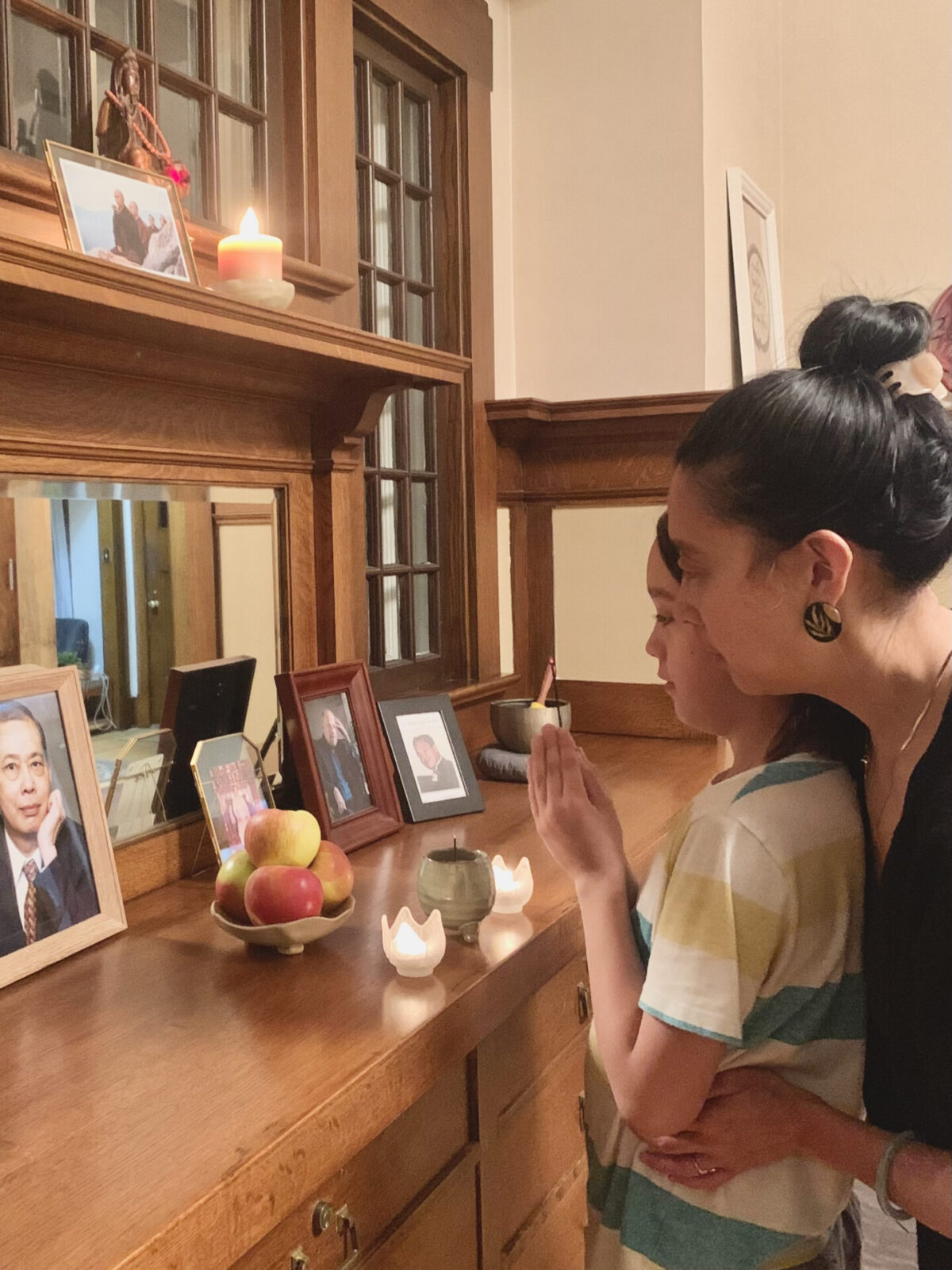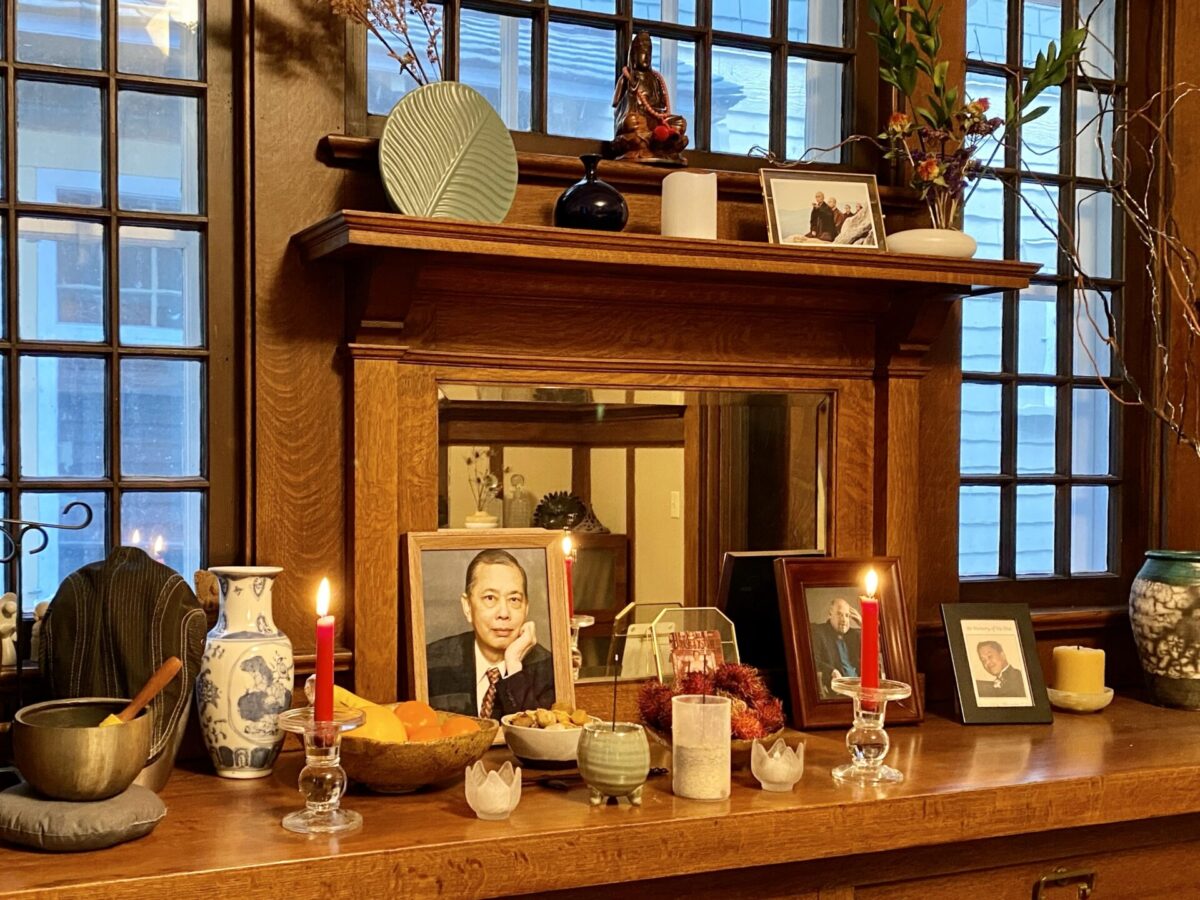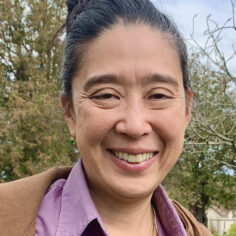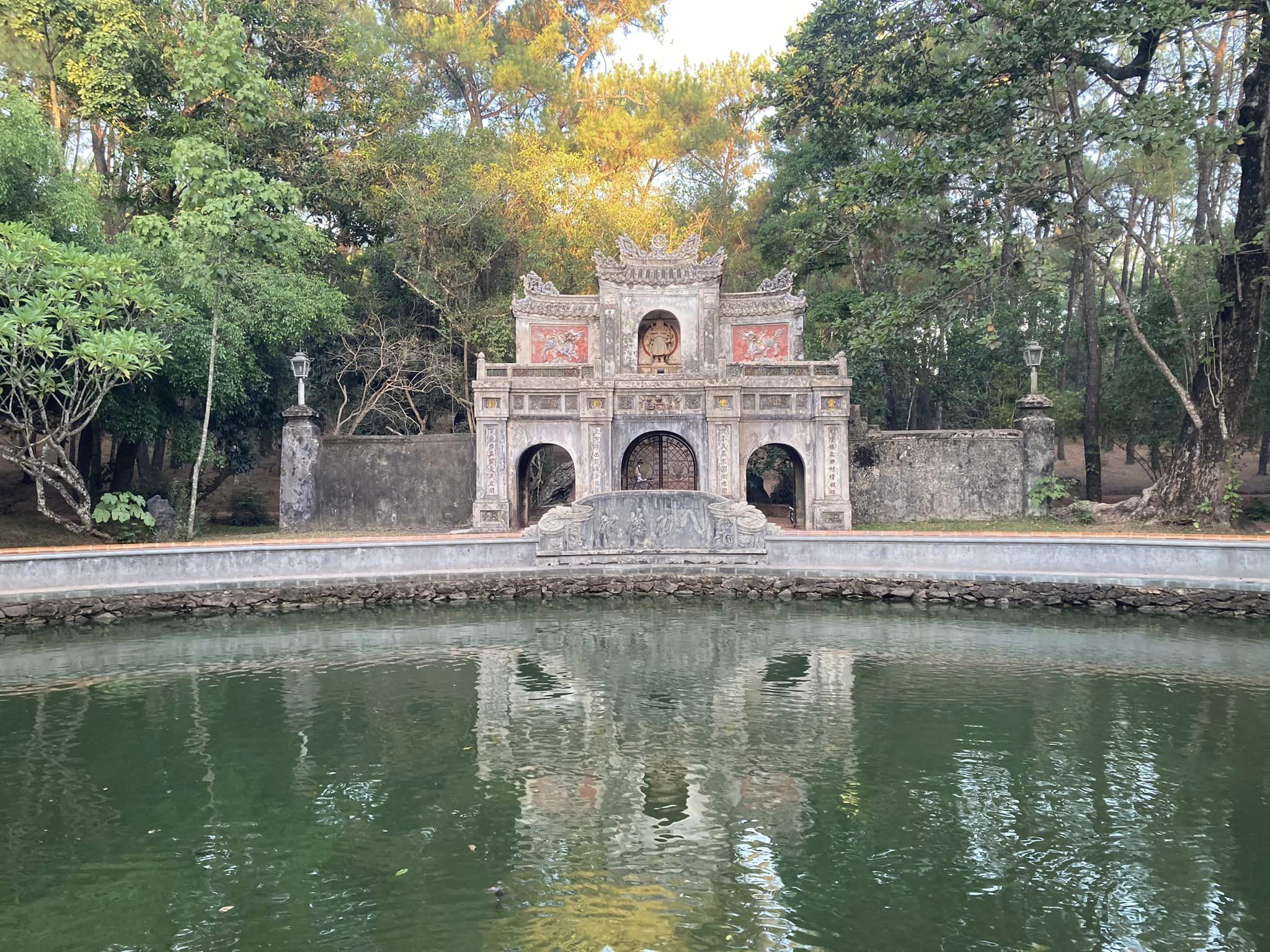Alda Ngô shares how Thích Nhất Hạnh helps her to transform intergenerational trauma and racial injustice and to honour her blood lineage as a first-generation Vietnamese Canadian.
By Alda Ngô on
When I was little, my family made offerings to the Buddha and our ancestors on an altar, inviting them to visit us on special occasions.
As a first-generation Vietnamese Canadian,
Alda Ngô shares how Thích Nhất Hạnh helps her to transform intergenerational trauma and racial injustice and to honour her blood lineage as a first-generation Vietnamese Canadian.
By Alda Ngô on
When I was little, my family made offerings to the Buddha and our ancestors on an altar, inviting them to visit us on special occasions.
As a first-generation Vietnamese Canadian, I never understood what this ritual meant. None of my school friends’ families were inviting dead relatives to eat with them, so it embarrassed me. Yet I enjoyed how it brought my family together.

My family escaped the American war in Vietnam and settled in Edmonton as refugees. Starting from scratch, we faced many stressors while acclimating to cold winters, learning English, and finding our place in a new culture. My parents worked hard to raise us kids while sponsoring family members to join us in the safety and opportunity of Canada, all in the context of a Vietnamese diaspora. I’ve inherited many wonderful seeds from my mother and father—among them courage, determination, and resilience.
My family will forever be grateful to the Christian family who sponsored us. They supported us both materially and spiritually. Their kindness and generosity nourished us in a time of uncertainty and scarcity, but the relationship was complicated.
Every week, we joined other refugee families on a school bus that brought us to our sponsor family’s church. My family was open and grateful for this kindness.
Then one time, our sponsor came inside and saw our Buddha on the altar. With concern, she shared her view that the Buddha was a false God and that it should be removed. This Buddha statue was precious to my mother in many ways. It had been given to her as an offering of hope and protection at the refugee camp by someone who had little to give. The impact of our sponsor’s actions were not what she intended.
My parents were vulnerably caught between not wanting to be ungrateful and wanting to honour their root wisdom tradition. A language barrier made everything harder, and there was a lot of suffering. They couldn’t agree to remove the Buddha, putting our family at risk, and we still carry anger and sadness from this encounter.
Although this happened before I was born, my body holds the painful memory. Ethnic, cultural, and spiritual oppression can trigger a strong activation in my body. When I’m faced with such experiences, my body associates it with threat to safety and my sympathetic nervous system fires—chest tightening, jaw tensing, heart racing, and face reddening with heat.
Thoughts that show up are, “How dare they? Who do they think they are? Do they think they’re better or more entitled?” Rage, insult, and powerlessness arise. I feel alone and against an offender. Seeds of violence are watered, and I want to yell and fight to teach them they’re wrong. Or I freeze and avoid the conflict altogether.
I continue to practise recognizing the activation as a bell of mindfulness to stop and return to my body, noticing bodily sensations and resting my attention where there’s less charge. I often find more stability in the sensations of my breath or in the points of pressure in the soles of my feet. When I’m able to anchor my attention in these spots, the activation slowly decreases and I touch calmness. I know that when I’m more calm, I’m better able to see clearly and respond skillfully.
When the activation is overwhelming, I contact someone who can help me feel more stable. Sometimes I’m successful, sometimes I’m not. I’ve learned that touching nourishing elements like my son’s laughter or the warmth of the sun on my cheek can help increase my capacity to be with difficulty.
I’m grateful for the conditions that support my mindfulness practice, and I’m aware that this isn’t available to everyone.
Despite having been divorced for twenty years, my parents returned to Vietnam with my sister and me in 2005. It was painful to revisit traumatic memories. During this trip, we were standing at an intersection when my father shared a new story about having fallen off his bike there because a bomb had gone off. It was hard to experience traumatic memories while navigating our family’s collective habit energies while in Vietnam together, but our journey was also healing.
I first encountered Thầy by chance during this trip, in a small temple in Huế. He was speaking to a local crowd in Vietnamese about healing war wounds. The familiar language sounded like my relatives’ voices, and it particularly sounded like my father’s. Hearing Thầy teach about nondiscrimination and interbeing in a language that I associated with suffering was transformative and I couldn’t hold back the tears.
Now I’m an adult with my own family, and it wasn’t until Thầy transitioned that I set up an ancestral altar in my home.
Not long after Thầy died, my father unexpectedly passed away. In our grieving, we placed a photo of my dad on our altar as well. We make offerings to the Buddha, Thầy, and my dad to remember them and to express our love and gratitude for what we’ve inherited from them. Without our spiritual and blood ancestors, we would not be where we are now.

The altar reminds us that our ancestors are present in us, and we honour them by watering the wonderful seeds we’ve inherited from them. I see that I’m the continuation of my spiritual father, Thầy, and also of my blood father.
In my grieving, I see that while many of my dad’s habit energy seeds have died with his body, my son and I have inherited some of them. Like many refugees, my dad persevered despite undiagnosed post-traumatic stress. We’re grateful for his endurance, sacrifice, and generosity. I recognize his seeds of happiness, creativity, and humour in us, as well as seeds of intolerance, pride, and violence. With mindfulness, I practise choosing which seeds to water.
My family escaped the physical war, but they still brought many parts of it with them to Canada. Bombs exploded outside in Vietnam; in Canada, the pressures of oppression, violence, and poverty manifested as internal explosions.
Dad wasn’t able to make peace with our sponsor, but his peaceful legacy can continue through us.
I love Thầy’s teaching that when meeting someone, we’re not just meeting them as an individual, but rather as their entire lineage, and we too represent all of our ancestors, who are present in us. As best as I can, I aspire to contribute to Sangha eyes and ears—creating safe spaces to practise skillful sharing and listening without discrimination so that deep collective understanding can heal all lineages and intergenerational traumas.
When we offer a land ancestral acknowledgment at our Sangha gatherings in Edmonton, we also offer acknowledgment and gratitude to our spiritual ancestors—the Buddha, Thầy, and the Plum Village lineage. We acknowledge this lineage as part of the ancestral stream of the Buddha and as a continuation of Thầy’s efforts to renew Buddhism, preserve its relevance, build a beloved community, and share the healing he realised in exile.
As somebody who shares the intergenerational trauma from which this lineage has grown, I feel it’s important to remember and honour these roots, particularly as Thầy is becoming an ancestral teacher. His body no longer holds this acknowledgement, so the Sangha body must.
I continue to grieve for the impermanence of Thầy and my dad while having gratitude that they returned me to my roots. I’m inspired by Thầy’s encouragement to look deeply into our roots in order to better understand ourselves and one another.
Thầy said that if we are connected to our roots, we will know what direction to grow in.


